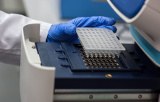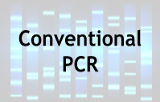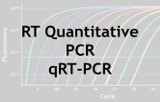Biorbyt
 |
||
Productos para avanzar en sus descubrimiento Desde anticuerpos a proteínas, desde productos bioquímicos a kits ELISA, los productos de investigación de alta calidad de Biorbyt están a su disposición para hacer posible una investigación de primera clase y contribuir a una comprensión más profunda de las ciencias de la vida.
Un completo catálogo de productos de investigación en ciencias de la vida que cubre las áreas de Neurociencia, Transducción de señales, Biología celular, Metabolismo del cáncer, Cardiovascular y otras.
Gama de productos
Elija entre más de 100.000 anticuerpos primarios y más de 2.000 secundarios. Monoclonales y policlonales probados en diversas aplicaciones: WB, ELISA, IHC, FACS y muchas más.
Elija entre más de 7.000 proteínas y más de 400 proteínas activas. Todas nuestras proteínas han sido validadas para su uso en ELISA, WB e IHC-P
Disponemos de más de 10.000 productos bioquímicos para utilizar en su investigación.
Disponemos de más de 2.000 kits ELISA que cubren muchas áreas de investigación. Cada kit incluye un protocolo detallado y ejemplos de los resultados esperados.
Página web: https://www.biorbyt.com/
| ||

PCR products
The PCR technique (for Polymerase Chain Reaction) is widely used in molecular biology. The principle of PCR is to use an enzyme, a polymerase, to duplicate in large numbers a known DNA or RNA sequence from a small quantity. This is done by repeating temperature transition cycles. As a general rule, each cycle consists of 3 steps: denaturation, hybridization and elongation.
The denaturation phase consists in separating the 2 DNA strands in order to prepare the next step. The hybridization step allows the sense and antisense primers to hybridize to the DNA matrices (the 2 strands separated during denaturation). The time and temperature of this step varies according to the sequence of the primers. The elongation phase allows the polymerases to synthesize the complementary strand of the DNA matrix. This new strand is synthesized from the free dNTPs present in the reaction medium. The duration of this step depends on the length of the sequence to be amplified.
There are now different types of PCR such as classical PCR, RT-PCR which allows to use RNA as a starting point using a reverse transcriptase, quantitative real-time PCR or qPCR which allows to measure the amount of polymerized DNA at each cycle (in real time) using a fluorescent marker.



